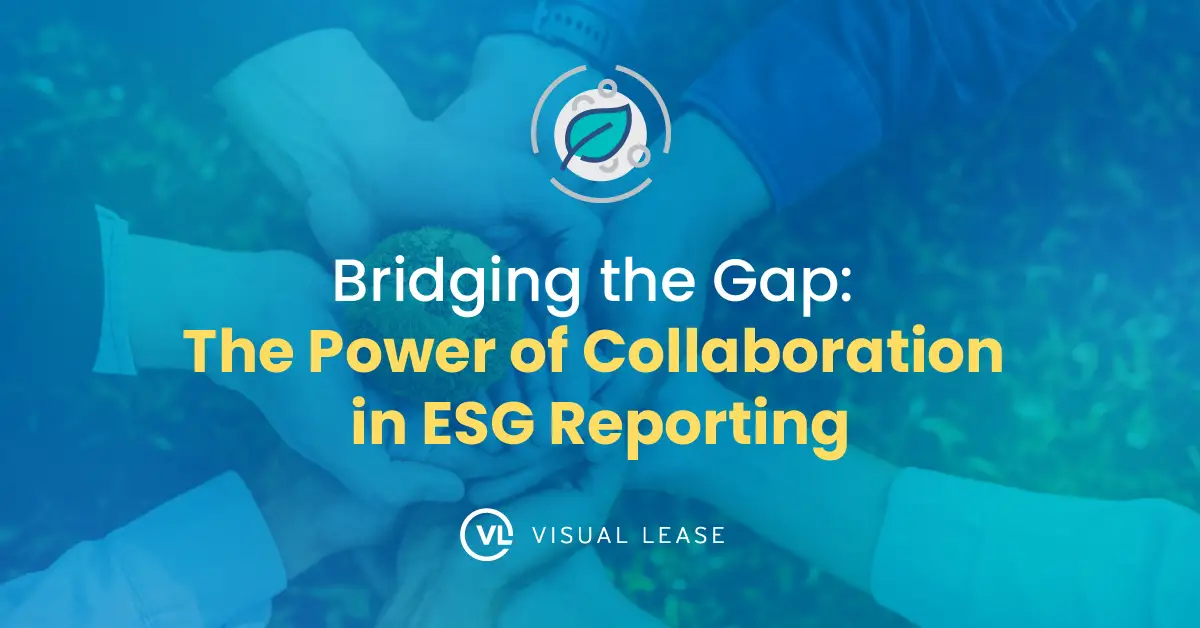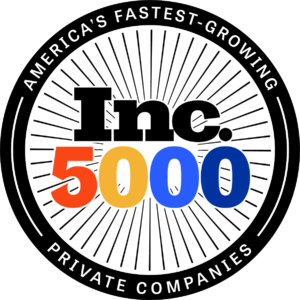
In the ever-evolving landscape of Environmental, Social, and Governance (ESG) reporting within real estate management, there has been a pivotal theme: the essential collaboration between real estate owners and occupiers, particularly in the context of ESG-related data exchange. This topic, enriched by the expertise of industry standards leaders and insights from Visual Lease’s strategic advisors, has unveiled the shifting dynamics of partnerships crucial for robust and effective ESG reporting.
The Mutual Dependency in ESG Reporting
Burdened with reporting responsibilities, each party often lacks the complete dataset necessary to fulfill comprehensive ESG reporting requirements. This gap underscores a natural yet challenging dependency that necessitates a collaborative approach to exchange critical data, such as energy usage, to meet each party’s reporting obligations.
- Shared Responsibilities: Both real estate owners and occupiers have distinct reporting obligations yet lack complete data sets necessary for comprehensive ESG reporting.
- Necessity for Data Exchange: A natural yet challenging dependency requires both parties to share crucial energy usage data, among other things, to meet their reporting needs.
Overcoming Traditional Barriers
Traditionally, fostering this collaboration has been fraught with barriers. Agreeing to share data and deciding on the method of exchange have posed significant hurdles rooted in a longstanding lack of mutual understanding and trust between owners and occupiers.
However, the evolving landscape of data standards is emerging as a bridge to facilitate this necessary exchange. Developing these standards, focusing on the technical and process aspects and incorporating business case elements, is breaking new ground in how data sharing should occur.
- Challenges in Collaboration: Historically, agreeing on data sharing and determining the exchange method have been significant hurdles between owners and occupiers.
- Role of Standards: The development of data standards is seen as a bridge to facilitate this necessary exchange, with projects focusing on technical aspects, processes, and business case elements to aid in breaking down traditional barriers.
The Lease as a Data Sharing Platform
One notable area of evolution is the potential modification of lease obligations to include specific data requirements for ESG reporting. This adjustment acknowledges that occupiers often need information from landlords, such as meter readings and building system usage data, which they would not have access to otherwise.
Conversely, tenants may directly deal with power companies in situations like net leases, holding data that the owner lacks. The exchange of this data set, facilitated by tenant and landlord systems capable of exporting or importing energy data consistently and accurately, underscores the critical role of technical solutions like APIs in this process.
- Modifying Lease Obligations: There is a growing acknowledgment that future lease agreements may need to incorporate data requirements to ensure both parties can efficiently fulfill their ESG reporting responsibilities.
- Technical Solutions for Data Integration: Adopting APIs and a focused approach to data exchange mechanisms are essential for enabling consistent and accurate data sharing between tenant and landlord systems.
The Broader Impact of Data Standards
Furthermore, the discussion shed light on the broader impact that implementing data standards could have on managing energy data within organizations. Many entities struggle with consistent internal energy data management. Introducing an energy data model provides both sides of the equation—owners and occupiers—with a foundation to manage their energy data effectively, suggesting how these standards can be intricately woven into an overarching data strategy.
- Confusion around Energy Data Management: Many organizations grapple with how to manage energy data internally consistently, which is where the energy data model comes into play.
- Incorporating Standards into Data Strategy: The energy data model provides a foundation for owners and occupiers to manage their energy data effectively, suggesting how standards can be woven into overall data strategies.
The Psychological Shift Towards Collaboration
Yet, beyond the technical solutions and standards development lies a more profound challenge – the psychological barrier to collaboration. Historically, adversarial relationships between owners and occupiers must evolve to acknowledge that achieving ESG goals is a collective effort, necessitating a paradigm shift towards more collaborative dynamics. Efforts to demystify standards and emphasize their practical value are underway, aiming to make these standards more approachable and understandable, fostering a culture of collaboration.
- Moving Past Adversarial Relationships: Recognizing that achieving ESG goals is a collective effort requires a shift in mindset from traditional adversarial dynamics to a more collaborative stance.
- Demystifying Standards: Efforts are underway to make standards more approachable and understandable, emphasizing their practical value in fostering owner-occupier collaboration.
Ian Cameron poignantly summarized this mission: “It’s deliberately multifaceted because all these various stakeholders do have a significant stake. But you’re absolutely right. There’s a cultural barrier to this. Sometimes standards are not always on the top of people’s minds, but we’re also doing a lot of work to demystify what standards are all about.”
This statement encapsulates the essence of our collective endeavor—to leverage and clarify standards to enhance collaboration and efficiency in ESG reporting across the real estate sector. Through innovative solutions provided by Visual Lease and the shared journey toward sustainability and transparency, we are paving the way for a future where collaborative efforts drive meaningful environmental impact.























